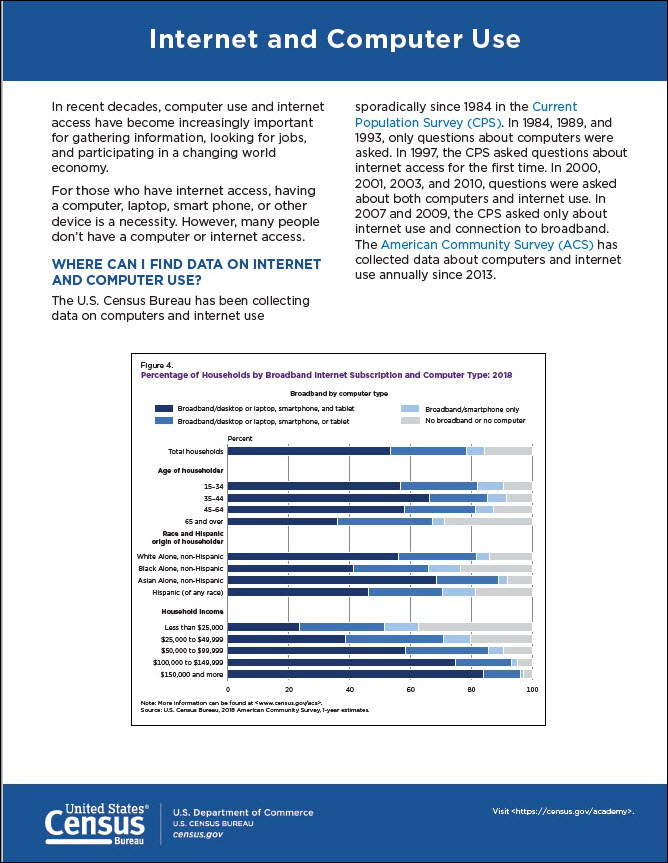Internet and Computer Use
In recent decades, computer usage and Internet access has become increasingly important for gathering information, looking for jobs, and participation in a changing world economy.
For those who have both the means and the desire to be connected, having computers, laptops, smart mobile phones, or other devices to access the Internet are a necessity. Many people, however, whether by choice or by lack of means, do not have a computer or use the Internet.
Where can I find this data?
The U.S. Census Bureau has been collecting data on computers and Internet use sporadically since 1984 in the Current Population Survey (CPS). In 1984, 1989, and 1993, only questions about computers were asked. In 1997, the CPS asked questions about Internet access for the first time. In 2000, 2001, 2003, and 2010, questions were asked about both computers and Internet use. In 2007 and 2009, the CPS asked only about Internet use and broadband connectedness. The American Community Survey (ACS) has collected data about computers and Internet use annually since 2013.
Access to a household computer and connection to the Internet is important to many Americans. From accessing news sources to connecting to family and friends, the Internet provides an arena that services nearly all aspects of daily life. Students of all ages use computers and broadband connections to complete homework assignments and take online courses. Job seekers can also obtain information about employment and apply to jobs online. Access to broadband Internet, in particular, is credited with having beneficial effects on individual empowerment, economic growth, and community development.
Did you know…
According to the 2020 American Community Survey, 1-year estimates, there were 8.8 percent (±1 percent) without an internet subscription in the United States.
Where do I get to the data?
You can go to Data Tools and Apps and view the tools available or for access to the ACS data go to data.census.gov.
For information on additional surveys go to Census Survey Explorer.




